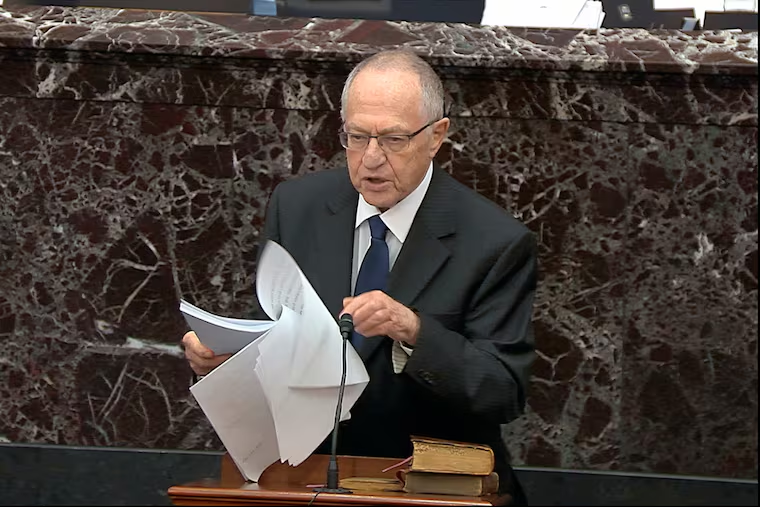Is ‘United States’ singular or plural? The answer may change how you view Trump’s acquittal | The Angry Grammarian
Maybe if Congressman Adam Schiff had led a grammatical argument for impeachment, things would have turned out differently.

Fifty-two U.S. senators voted against the grammar of the Constitution.
Maybe if Congressman Adam Schiff had led a grammatical argument for impeachment, things would have turned out differently.
As many Americans learned amid the impeachment proceedings, Article III is the only time the Constitution spells out a crime, treason. But it’s noteworthy for another reason: The words United States appear 54 times in the Constitution, but the treason clause is the only one that explicitly refers to the United States as plural.
“Treason against the United States, shall consist only in levying War against them, or in adhering to their Enemies, giving them Aid and Comfort,” the sentence reads (emphasis added).
In every other one of the 53 mentions, the United States is a singular entity — a novel idea in 1787. In a few places, the Constitution even goes out of its way to distinguish between the singular United States and the plural states that compose the United States (all emphasis added): “[The president] shall not receive … any other Emolument from the United States, or any of them.” (Article II.) “Nothing in this Constitution shall be so construed as to Prejudice any Claims of the United States, or of any particular State.” (Article IV.) “The Senators and Representatives before mentioned … both of the United States and of the several States … ” (Article VI.) In other words, while the founders were really into the idea of a United States of America that moved and acted as one thing — that was kind of the point of the revolution — they also recognized that in the special case of treason, the crime could be committed against not just the singular country, but against its individual states.
Fast-forward 233 years. Speaking in the Senate, Alan Dershowitz made the argument that anything Trump does in the interest of his reelection is inherently unimpeachable if he believes his reelection is in the public interest. “If a president does something which he believes will help him get elected — in the public interest — that cannot be the kind of quid pro quo that results in impeachment,” Dershowitz said.
It’s an argument eerily reminiscent of Richard Nixon’s “When the president does it, that means that it is not illegal,” or Louis XIV’s “L’ètat, c’est moi” (“The state, it is I”).
At this dangerous assertion, senators on both sides of the aisle were presumably too gobsmacked to pivot to the grammatical rebuttal: Let’s say for a second that Dershowitz is right, that Trump is the state and therefore unable to commit a crime against himself. In no universe is Trump also the physical embodiment of Pennsylvania or New Jersey or California or Alaska. And as the Constitution’s treason clause makes crystal clear, treason is not just against the singular country; it is also against the various states that compose that country.
That’s where Dershowitz’s argument falls apart.
Unfortunately, Senate Republicans have made clear that they give no credence to grammatical arguments. Instead, those plural United States will have to speak loudly, with one voice, at the ballot box in November.
The Angry Grammarian, otherwise known as Jeffrey Barg, looks at how language, grammar, and punctuation shape our world, and appears biweekly. Send comments, questions and countable nouns to jeff@theangrygrammarian.com.